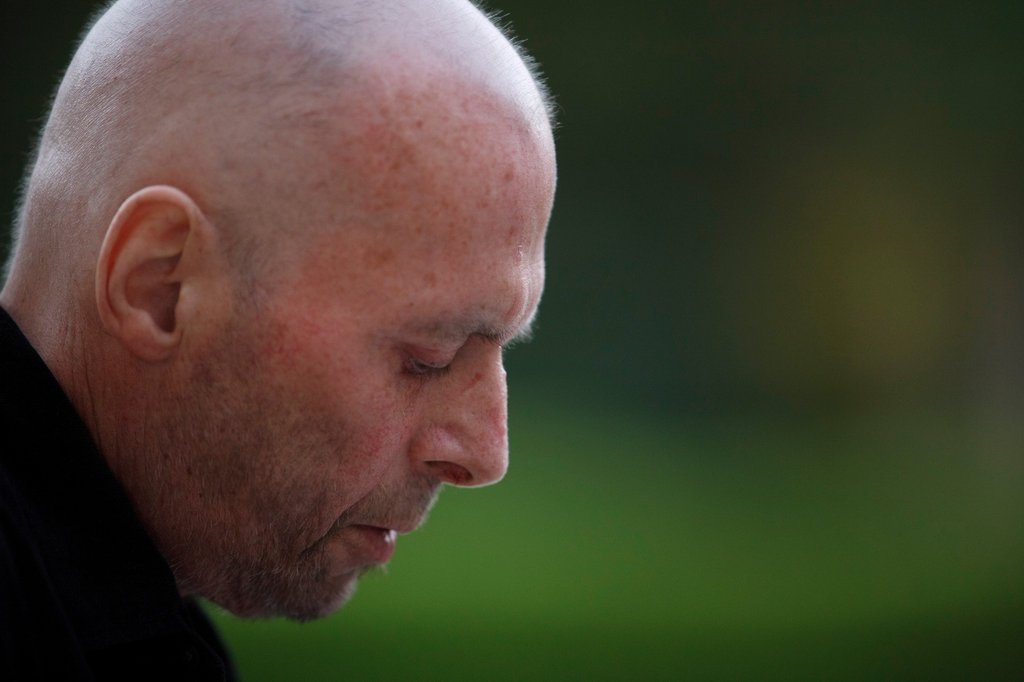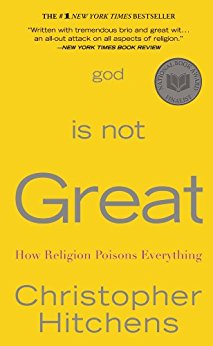As part of our required reading, we were asked to read anti-theist Christopher Hitchen’s book God is Not Great. I had a hard time reading this book for many reasons. Here is my review of the book:
In God’s not Great, Hitchens set out by giving us four irreducible objections to religious faith. This objection would dictate the flow of his book. Let me state the four objections: (a) it wholly misrepresents the origins of man and the cosmos. Hitchens wrote that it is the man who created God. Thus, there are thousands of organized religions we see in the world today. (b) It manages to combine the maximum of servility (an excessive willingness to serve or please others) with the maximum of solipsism (the view or theory that the self is all that can be known to exist.) (c) It is both the result and the cause of dangerous sexual repression. Hitchens would then make general statements on the Bible endorsing slavery, trafficking, murdering of women and children and make numerous cases on how other religions repressed sexuality yet at the same time abuse people sexually. (d) It is grounded on wishful-thinking.
One of the best summaries of the book I read is from Mary Riddell of the Guardian, who said, “Religion, in God Is Not Great, is ‘violent, irrational, intolerant, allied to racism and tribalism and bigotry, invested in ignorance and hostile to free inquiry.’ Guilty of misogyny, child abuse and fraud on a monumental scale, it is ‘plagiarism of plagiarism, of a hearsay of a hearsay, of an illusion of an illusion.’”[1]
In Rice Broocks book, God’s Not Dead; he mentioned several strategies atheists would use to defend their stand and it was quite glaring that Hitchens used the same strategy in writing his book:
Use ridicule and mockery to label people of faith as anti-intellectual or irrational.
Set up a false dichotomy between science and faith, telling people to choose one or the other.
Keep the debate one-sided by not allowing a dissenting opinion in the public arena, making sure the only places where expressions of faith are allowed are in strictly religious settings. [2]
To add to my critique of the book, Hitchens also used the strategy of lumping up all religions by making general sweeping statements of all faith. The problem with this kind of writing is that not all religions are equal and the same as Tim Keller would make a case in his book, “Reason for God.”
Another critique of the book is how some of the cases he cited were not the general sentiment of a particular religion, especially in the world of the evangelicals. Hitchens would use documented horror stories and traumatic experiences of a few to picture the majority, which is applied to atheism may also backfire on them.
The last critique of the book was how some of his narratives were not academically researched but leaned towards a more pop culture storytelling of events. Reading the book, I felt like his research of the facts were half-baked and hastily done. Reading through some stories he shared like John Calvin being a murderer and finding out the real story behind what happened made me think of the other stories he shared in the book might not be true either because some stories he cited were not real or inaccurate. In light of this, I was no longer sure if I could trust his other historical narratives of other religions.
The strength of the book is how Christopher Hitchens wrote it with passion and wit. He is a good storyteller, and this is what endeared him to many, making his book a best-seller. This art of telling the story of our faith is a challenge for some of our Christian authors and thinkers because as much as our faith can be easily defended, it is how we tell the story of our faith that would convince the people that our faith is meaningful and authentic. Marketer Seth Godin said this, “the idea that spreads win.” In the story-telling department, we as a movement have a lot to learn from the atheists.
Hitchens also made excellent points in citing history as his evidence on how religion was used by sinful men to manipulate and control people. This point is evident throughout history and has caused much damage and trauma to many. However, it is this same fact where I see how Christianity plays a big part in redeeming our sinful actions. We are people of grace, and we must admit the mistakes that our forefathers did in the faith and live out the gospel of the kingdom the best way we can – with grace and truth.
[1] Mary Riddell, “Review: God Is Not Great by Christopher Hitchens,” The Observer, June 02, 2007, , accessed January 20, 2018, https://www.theguardian.com/books/2007/jun/03/society.
[2] Rice Broocks, Gods not dead: evidence for God in an age of uncertainty (Nashville: W Publishing Group, an imprint of Thomas Nelson, 2015), Xii.

